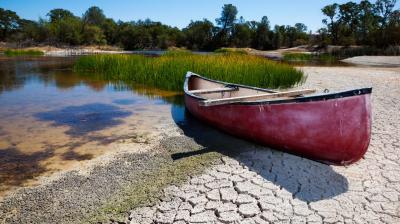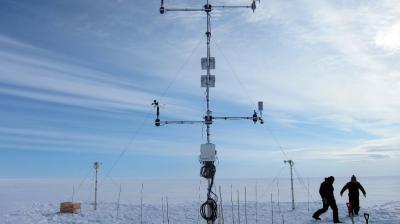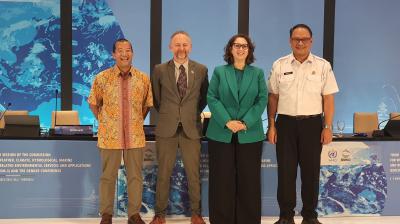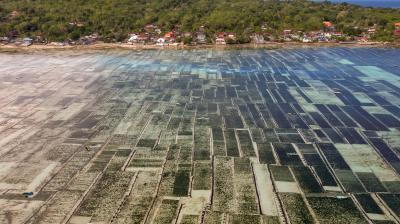Climate change cited in landmark report on “nature’s dangerous decline”
Climate change is one of the contributing factors cited in a new landmark report which says that nature is declining globally at rates unprecedented in human history, and that the about one million species are threatened with extinction.

Climate change is one of the contributing factors cited in a new landmark report which says that nature is declining globally at rates unprecedented in human history, and that the about one million species are threatened with extinction.
The report from the Intergovernmental Science-Policy Platform on Biodiversity and Ecosystem Services (IPBES) says that the average abundance of native species in most major land-based habitats has fallen by at least 20%, mostly since 1900.
More than 40% of amphibian species, almost 33% of reef-forming corals and more than a third of all marine mammals are threatened. The picture is less clear for insect species, but available evidence supports a tentative estimate of 10% being threatened. At least 680 vertebrate species had been driven to extinction since the 16th century and more than 9% of all domesticated breeds of mammals used for food and agriculture had become extinct by 2016, with at least 1,000 more breeds still threatened.
To increase the policy-relevance of the Report, the assessment’s authors have ranked, for the first time at this scale and based on a thorough analysis of the available evidence, the five direct drivers of change in nature with the largest relative global impacts so far. These culprits are, in descending order: (1) changes in land and sea use; (2) direct exploitation of organisms; (3) climate change; (4) pollution and (5) invasive alien species.
The Report notes that, since 1980, greenhouse gas emissions have doubled, raising average global temperatures by at least 0.7 degrees Celsius – with climate change already impacting nature from the level of ecosystems to that of genetics – impacts expected to increase over the coming decades, in some cases surpassing the impact of land and sea use change and other drivers.
The IPBES Global Assessment Report on Biodiversity and Ecosystem Services is the most comprehensive ever completed. It is the first intergovernmental Report of its kind.
Compiled by 145 expert authors from 50 countries over the past three years, with inputs from another 310 contributing authors, the Report assesses changes over the past five decades, providing a comprehensive picture of the relationship between economic development pathways and their impacts on nature. It also offers a range of possible scenarios for the coming decades.
IPBES media release is here










